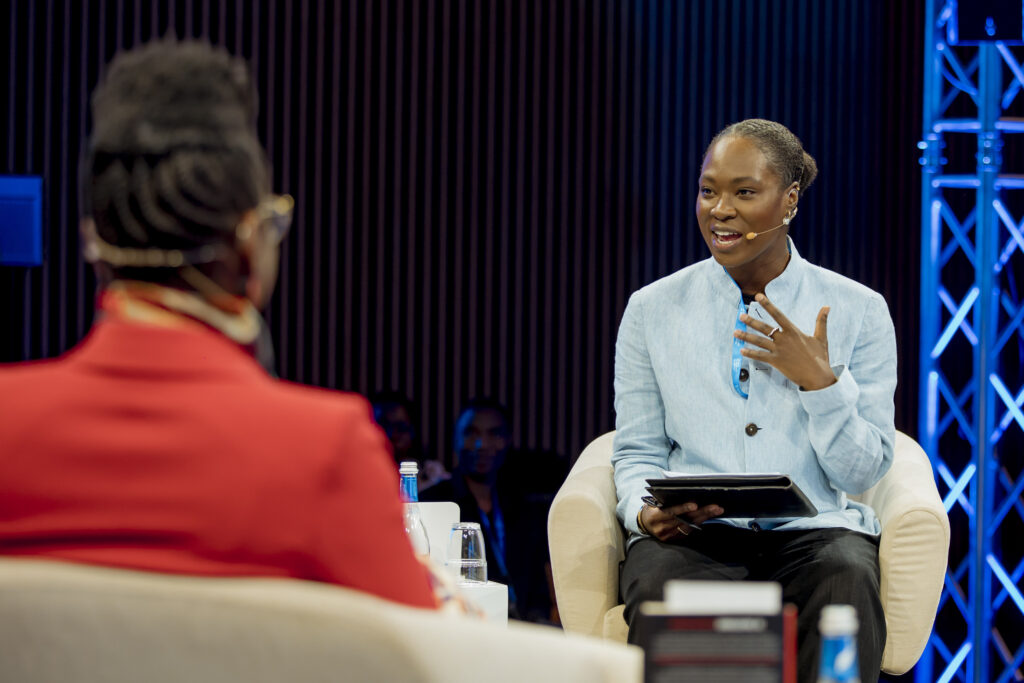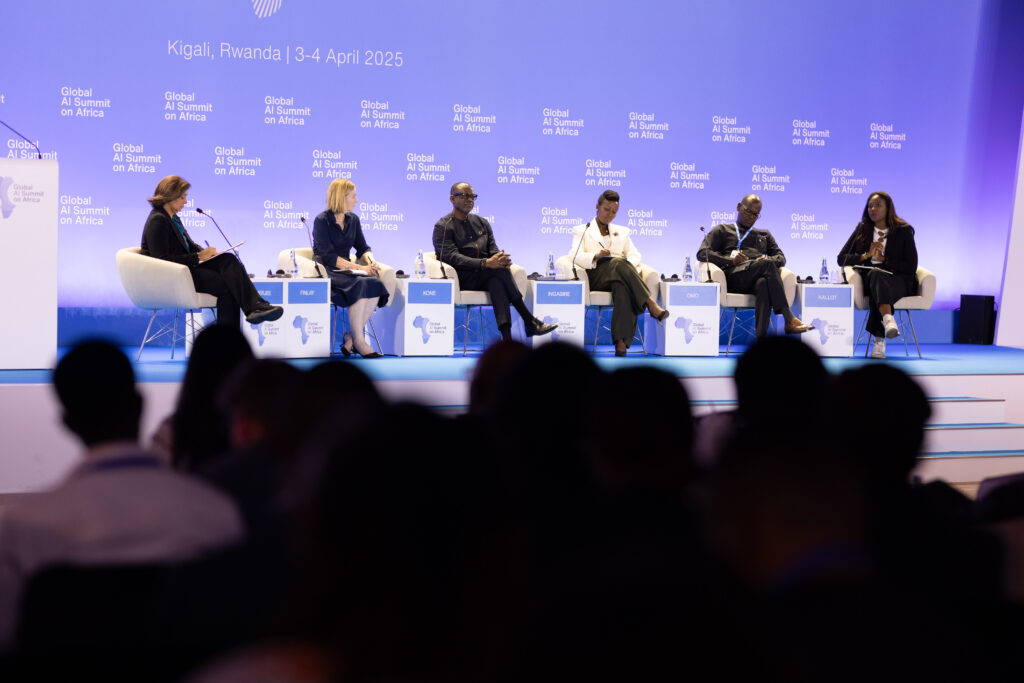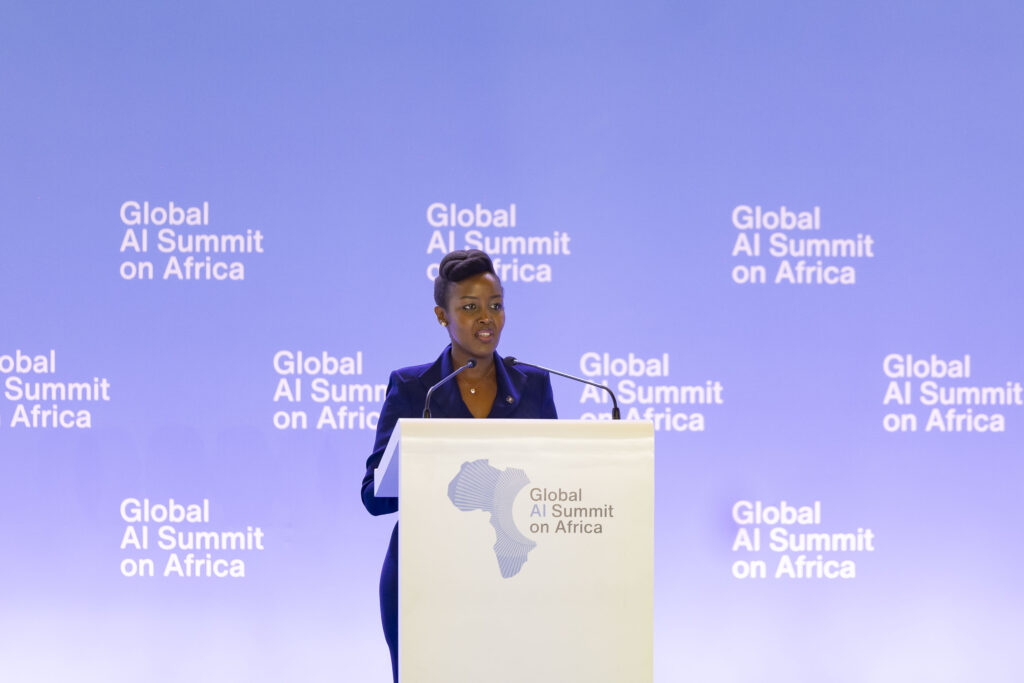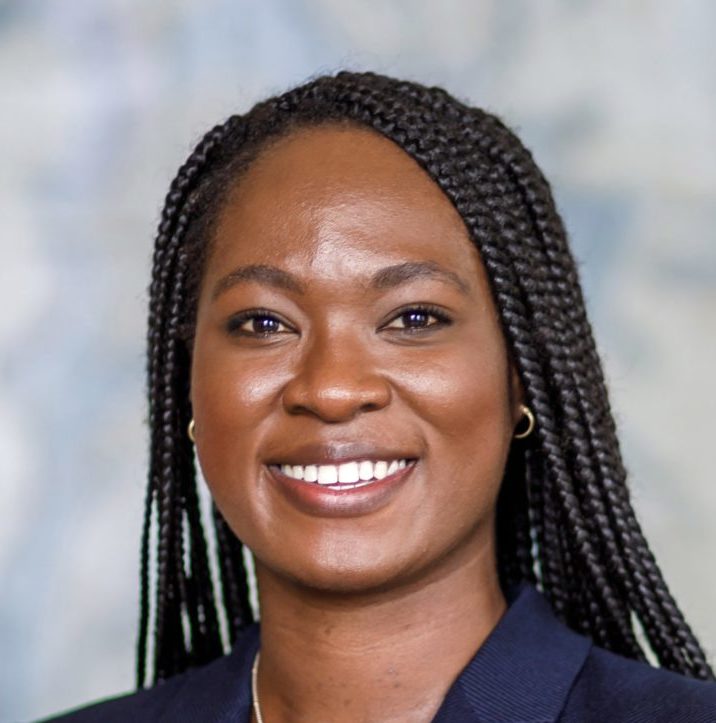Last week, Partnership on AI CEO Rebecca Finlay and I joined the inaugural Global AI Summit on Africa in Kigali, Rwanda. There, we took part in meaningful conversations and panels to discuss building a collective action plan for AI across the continent. AI has already presented great benefits and challenges across the region. Countries across the continent are at very different stages of AI adoption and also have varied priorities, but the Summit declaration, and plans for stronger regional integration related to AI, create a shared commitment to specific objectives.
In South Africa AI is being used to help address the HIV epidemic with the Large Language Model-based chatbot app Your Choice. Farmers in Kenya are using AI powered apps to diagnose diseases in crops to aid in production. In Nigeria, a startup is building the first government supported LLM, increasing the representation of Nigerian Languages in AI systems around the world. At the Summit, ambitious actions such as Cassava’s plans to grow compute capacity in Africa and a $60 billion Africa AI Fund within the Africa Declaration on AI, demonstrate a shared goal across countries on the continent to scale up this form of enterprise, AI deployment, and more importantly, to facilitate the development of open, smaller and more sustainable models on the continent itself.
But AI isn’t without its risks, and the misuse of AI grows as the technology becomes more accessible and widespread. In a recent case study, Code for Africa explored AI’s impact on elections in South Africa. In May 2024, ahead of the South African general elections, the then-leading opposition party broadcast and shared an advertisement featuring an AI-generated version of a South African flag burning, sparking public outrage. The case study highlighted the need for mitigation strategies, such as direct disclosure, to protect consumers of synthetic media and also emphasized the need for standardized global AI governance.
As governments worldwide urgently develop their own frameworks to advance trust and safety in AI, we continue to build bridges with our PAI Partners across regions, sectors, and perspectives to unify these efforts. Our 2025 priority on expanding efforts globally persists as we continue to explore opportunities to engage diverse perspectives across the world to advance safe and responsible AI.
African countries face unique challenges in leveraging AI, compared to North America and Western Europe, due to inequalities within and between continents related to data, infrastructure and connectivity, digital skills, and research and development. However, despite these challenges, Africa stands at a pivotal moment in AI development, giving us an opportunity to learn from early adopters while forging a path forward that reflects its diverse contexts and priorities. The decisions we make about AI governance today will shape societies and economies for decades to come, so it is essential that we bring representatives from across continents, regions, and sectors to advance our goal of fostering AI that benefits people and society.

PAI’s Senior Director of Policy, Stephanie Ifayemi on the Reimagining Trust and Safety to Drive Equity and Inclusion panel
I was honored to lead a discussion at the Summit on Trust and Safety that touched on the mechanisms that African policymakers and stakeholders need to put in place as we scale AI adoption, development, and deployment on the continent. That includes striking the right balance between international alignment/interoperability, and building trust and safety to account for distinctive African needs.
We were also honored to have our CEO Rebecca Finlay participate in the closing ceremony of the Summit in a panel that explored the opportunities for all forms of governance (including at the national, regional and global level) to advance innovation with AI in the public interest. During the Summit, we also co-hosted a breakfast roundtable in partnership with the DeepLearning Indaba and PAI Board Member Vukosi Marivate to discuss critical AI topics with the global community.

PAI CEO Rebecca Finlay on the AI Governance and Africa’s positioning within the global context panel
3 Key Themes that Emerged from the Summit
To date, the African Union Agenda Continental Artificial Intelligence Strategy has guided the continental approach in addition to critical frameworks such as Smart Africa’s AI for Africa Blueprint, the AU Data Policy Framework and the UN’s Global Digital Compact.
At the Summit, we were pleased to see the unveiling of The Africa Declaration on Artificial Intelligence which pools together several different components in the strategies above, but provides an updated vision to advance leadership in data (including open datasets), talent, compute infrastructure, governance and institutional cooperation.
We see a growing focus on 3 core areas that were highlighted by the Declaration, President Kagame and government leaders, industry, and civil society from the continent:
- Digital Public / Physical infrastructure: Enhancing Africa’s digital and physical infrastructure is crucial to supporting AI development in the region. This includes significant investments in data centers, which will boost productivity, support businesses and make Africa economically competitive in the future and that challenges related to siloed datasets are overcome through greater continental alignment and open data. Our community of partners applauded these critical milestones at our breakfast convening. We also noted that as these initiatives are implemented we must ensure that interdisciplinary and public-private dialogues, which include civil society, are in place to ensure input from local researchers and citizens.
- Ecosystem building: There is a pressing need to foster and grow Africa’s local AI ecosystem, including through scaling startups, developing skills and growing the AI focused workforce. Discussions at the summit emphasized the importance of multistakeholderism and building an ecosystem of interdisciplinary expertise to support the sustainable growth of safe and responsible AI.
- Continental collaboration, alignment and integration: Overcoming regional silos and barriers to trade and AI development is necessary to foster unity across the continent, accelerate growth, intra-African collaboration and to harmonize governance frameworks. This includes putting mechanisms in place to support building local datasets.

Hon. Minister Paula Ingabire delivering welcoming remarks
Global AI Governance and a Robust Digital Ecosystem
There is a real opportunity for Africa at this moment, including to learn from the mistakes of other regions, to carve out its own path and ensure that AI governance is inclusive and beneficial to even the most vulnerable populations.
- Building in trust and safety from the outset: Getting trust and safety right from the beginning by building the necessary institutions and safety mechanisms needed is crucial. Building on the plethora of research and lessons from incidents, and calls for assurance mechanisms (e.g. standards, audits etc), while maintaining competitiveness and encouraging innovation can aid in building trust and safety. This will be a critical ingredient for success in the long term for the continent. Through a multistakeholder approach, the continent can maximize the benefits of AI while mitigating its inherent risks.
- Alignment across the governance stack: As outlined in our Policy Alignment on AI Transparency Report, interoperability is key to creating a unified and effective AI governance ecosystem.To unlock the full potential of AI development and adoption across the continent interoperability and alignment demands robust mechanisms at local, regional, and international levels—creating institutional frameworks that facilitate seamless interoperability while honoring the continent’s diverse needs. Effective coordination must balance distinct local contexts with continent-wide alignment and global integration. Success hinges on a clear strategy and institution building. The proposed African AI Scientific Panel (within the newly announced Declaration) and the concept of an African AI Safety Institute (which was discussed on my Trust and Safety panel) represent critical opportunities to advance this vision—serving as cornerstones for an ecosystem that addresses country-level requirements, promotes continental alignment, and facilitates international coordination. These proposed institutions are examples that could become powerful engines for Africa’s unified approach to responsible AI, building the foundation for technological sovereignty while ensuring meaningful participation in global AI governance.
- Ensuring civil society has a seat at the table: AI’s global impact requires a united effort to develop effective global governance and as we build the vision for the continent, we hope to see civil society organizations, workers, and citizens centered in these conversations. The summit was a great start, and the African AI council is an example opportunity to ensure these voices are cemented in the next steps towards implementation.
This summit has highlighted the significance of an inclusive multistakeholder approach and we look forward to working with our partners to ensure that civil society has a clear and defined role as a critical player in this ecosystem. We are excited to work on next steps, particularly the delivery of the declaration and to collaborate with the forthcoming African AI council. To stay up to date with our work in this space sign up for our newsletter.



![$hero_image['alt']](https://partnershiponai.org/wp-content/uploads/2025/04/africa-AI-summit-1800x832-1.webp)